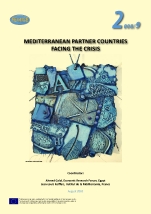The broad objective of this research is to deliver insights into the process through which income and consumption explain Subjective Well-Being (SWB). Extant studies on how individual economic conditions influence SWB mainly focus on the role of income as a driver of SWB. These studies show income to be a modest correlate of SWB. In the present research we see income as a means that enables consumption. The view is that consumption enables people to satisfy their needs, which in turn explain SWB. Hence, while some studies suggest that policy makers may act on people’s income to influence SWB, the present study shifts the focus to consumption and need satisfaction as antecedents of SWB, which has important theoretical and practical implications.
In line with consumption theories, we study consumption in terms of individually perceived consumption deprivation. We distinguish three types of consumption deprivation: functional (deprivation of food, water, shelter, etc.), leisure (deprivation of goods and services that provide pleasurable experiences) and status (deprivation of goods linked to self-enhancement). Drawing on Maslow’s need hierarchy theory and Deci and Ryan’s psychological needs theory, we distinguish different types of needs. In particular, we differentiate lower-order needs related to biological sustenance and safety (basic needs) from higher-order needs related to social belongingness (social needs), self-esteem (esteem needs), and self-actualization (actualization needs). Hence, we predict that SWB is driven by consumption, but only to the extent that consumption leads to needs fulfillment (Figure 1).
The model test relies on data collected in 2012 from representative samples in four countries: Tunisia, Morocco, France, and Benin. The country comparison of consumption deprivation reveals that people in France feel the least deprived (in all three categories of goods), followed by Tunisia, Morocco, and Benin. The measures show good psychometric properties and appropriate levels of cross-cultural measurement invariance, thus enabling cross-cultural comparisons.
Our empirical analyses demonstrate that consumption is an important determinant of SWB, but only through the mediating effect of needs satisfaction. In particular, the empirical results show that the direct effect of consumption on SWB disappears when needs satisfaction is introduced into the model, suggesting that the relationship between consumption and SWB is fully mediated by needs satisfaction. This result consistently holds on the aggregate level (four countries), at the level of each individual country (France, Tunisia, Morocco, Benin), as well as for different income groups. Consequently, policy makers who are concerned with SWB should focus on need satisfaction and act upon its antecedents, one of which is consumption.
Our results show that SWB is essentially determined by the satisfaction of basic needs (food, shelter, and safety) and esteem needs (respect, status, and autonomy). Satisfaction of actualization needs contributes to SWB to a much lesser extent. Surprisingly, satisfaction of social needs does not contribute to SWB at all. Hence, the key drivers of SWB on which policy makers should focus are satisfaction of basic and esteem needs.
The different consumption types act differently on needs satisfaction. While some differences emerge between the four countries and income groups, it appears that consumption deprivation of basic goods determines essentially basic need satisfaction; consumption deprivation of leisure goods determines basic and particularly esteem need satisfaction; consumption deprivation of status goods is essentially related to esteem need satisfaction.
Governments are concerned with promoting the welfare of their people and how to best plan and adjust policy to take care of what citizens need and want. Therefore, policy makers require a solid empirical information base for action. Policy makers have various means to stimulate consumption, such as income tax policies, subsidized programs, trade regulations or communication policies. Community governments can assess the extent to which their services are effective in serving the needs of community residents. These include services for fire fighting, ambulances, libraries, as well as community-related services such as alcohol/drug abuse services, crisis intervention services, family planning services, and many others that may effectively contribute to enhance different types of need satisfaction (Sirgy et al., 1995). The measures and models developed in this research may be used as a diagnostic tool to periodically assess the effectiveness of such services. Need satisfaction fulfillment can also be used to conduct program evaluations at regional as well as at national levels. The need fulfillment approach is useful in guiding the formulation of public policy such that industry and public policy officials in various institutional sectors (nursing, healthcare, transportation, etc.) may draw on the needs fulfillment approach to formulate policies and concrete action plans. They may as well encourage the business sector to develop appropriate goods and services that meet specific needs in an attempt to enhance SWB and quality of life.




